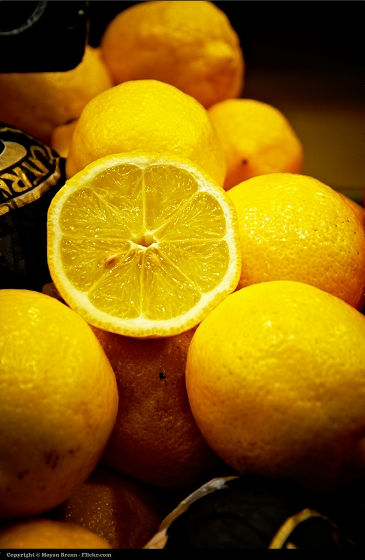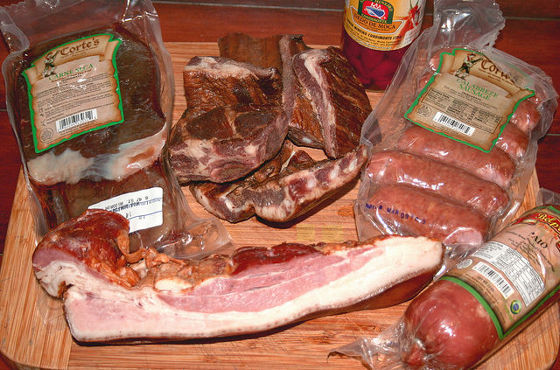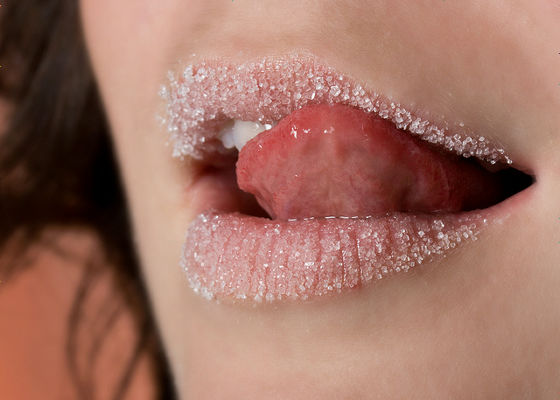Where is processed food different from real food?

ByRobyn Lee
"Processed foods cause damage to American citizens, resulting in an increase in obesity and type 2 diabetes, increasing the budget for health care in the United States," said Robert Rustig, professor at the University of California. From the viewpoint of nutrition, Professor Rusty wrote how processed food differs from real food.
Processed Food - An Experiment That Failed | Clinical Pharmacy and Pharmacology | JAMA Pediatrics | The JAMA Network
http://jamanetwork.com/journals/jamapediatrics/article-abstract/2598465
11 Ways Processed Food Is Different from Real Food
http://www.livescience.com/57581-processed-food-differences.html
Professor RustigThe JAMA NetworkAccording to the editorial published in the editorial, processed foods are "food-engineered in the process of manufacturing" and meet the following seven criteria.
· Mass-produced
· The same product is made from one to the next
· Products are consistent regardless of where they are purchased
· I use special materials
· Main nutrients are in a frozen state
· Emulsifiers are used to make fat base and water base uniform
- Can be stored for a long time in refrigerator or shelf
Although the above is the definition of general processed food, it is hard to understand what is actually different from real food in terms of nutrition only by the characteristics of the manufacturing process. Therefore, Professor Rustig summarizes 11 features of processed food as follows.
◆ 01: Dietary fiber is not sufficiently contained

ByWith wind
Dietary fiber plays an important role in the process of food being absorbed in the intestine. There are water soluble and insoluble dietary fiber, but water soluble dietary fiber takes in water like gelatin and covers the intestinal wall, slowing down the absorption rate of glucose and fructose. This will prevent a sudden rise in blood sugar level.
You can see how the rapid increase in blood glucose level affects your body by reading the following articles.
"How do carbohydrates impact your health?" Explained in an easy-to-understand manner why "taking too much carbohydrate" is bad for your health - GIGAZINE

In addition, as the absorption rate slows down, intestinal bacteria take longer to eat food, so the food is decomposed firmly and a compound that gives a good influence to the human body is issued
◆ 02: Inadequate amount of omega-3 fatty acid
Omega-3 fatty acids are rich in fish and nuts and have anti-inflammatory action in the bodyEicosapentaenoic acidYaDocosahexaenoic acid.
◆ 03: too many omega-6 fatty acids
Unlike omega-3 fatty acids, omega-6 fatty acids are inflammatory in the bodyArachidonic acidIt changes to. Omega-6 fatty acids are not necessarily harmful to the body, there are various opinions, but Professor Rusty recommends that it take in a ratio of omega-3 fatty acid to omega-6 fatty acid to 1: 1. However, in the United States the intake ratio of both is 1 to 25 in fact. Omega-6 fatty acid intake too muchOxidative stressIt will cause damage to the cells.
◆ 04: The content of micronutrients is too little

ByMoyan Brenn
Micronutrients such as vitamin C and vitamin E have antioxidant action and prevent cells from being damaged, but processed foods contain little micronutrients.
◆ 05: Too much trans fatty acids
Trans fatty acids can not be converted into nutrition by decomposition of human body due to the molecular structure different from natural fat such as omega 3 fatty acid and omega 6 fatty acid. Therefore, it eventually accumulates in human arteries and liver, causing adverse effects such as protein denaturation and DNA damageFree radicalIt creates.
The United States Food and Drug Administration will regulate the addition of trans fatty acid to food as a rule from June 2018, but until then, trans fatty acids have been included in foods. Also in Japan there are no regulations on trans fatty acids as of January 2017.
◆ 06:Branched chain amino acidsToo much
Among the 20 types of amino acids that make up proteins, nine kinds that can not be synthesized in humans are called essential amino acids. Among the essential amino acids, valine, leucine, isoleucine and the like having a branched carbon chain in the side chain, etc.It is a branched chain amino acid.
Branched chain amino acids make muscles and are important to the human body, which is an energy source at the time of activity. However, excessive branched chain amino acids are carried to the liver and accumulated as fat.
◆ 07: Too much emulsifier
Emulsifiers have the role of not separating oil and moisture, and are used to make foods uniform and stabilize with many foods. However, in recent studies, when the emulsifying agent affects intestinal bacteria and intestinal mucosa is damagedIt has been announced. Professor Rustig says that emulsifiers are exposing people to the risks of intestinal diseases and allergies.
◆ 08: Too much nitrate

ByJoel Cooper
Salted meat in America, in JapanCheese · sake · meat products · whale meat baconIncluded innitrateIt is not particularly harmful to the human body as it is usually taken. However, it is a carcinogen in the bodyNitroso compoundIt may be involved in the generation of.
◆ 09: Too much salt
This is a well-known fact, but processed food is much more commonly used than food that is not processed food. Professor Rustig says that taking too much salt is related to heart disease and high blood pressure.
◆ 10: Too much ethanol
Although it does not apply to all processed foods, there are many processed foods containing ethanol and alcohol. Overdose of ethanol causes liver fat, raises oxidative stress and causes many diseases.
◆ 11: Too much fructose

ByJeanny
Fructose, a type of sugar, is degraded in the liver in the same way as ethanol. Therefore, according to Professor Rustig, "Sugar is sometimes referred to as alcohol for children". Today, children who do not consume alcohol may become diseases like fatty liver disease caused by alcohol, but Professor Rustig says that this is due to consumption of sugar.
Related Posts:
in Junk Food, Posted by darkhorse_log







